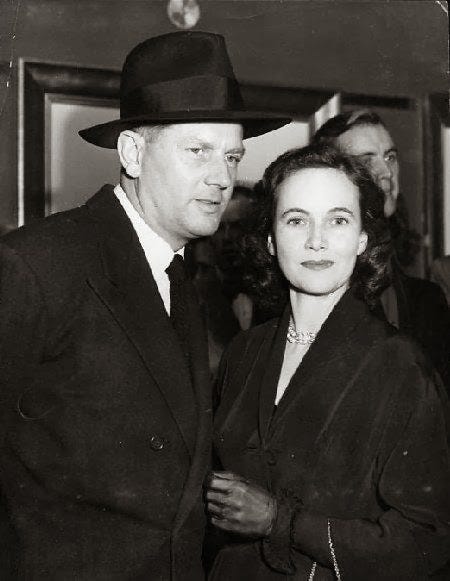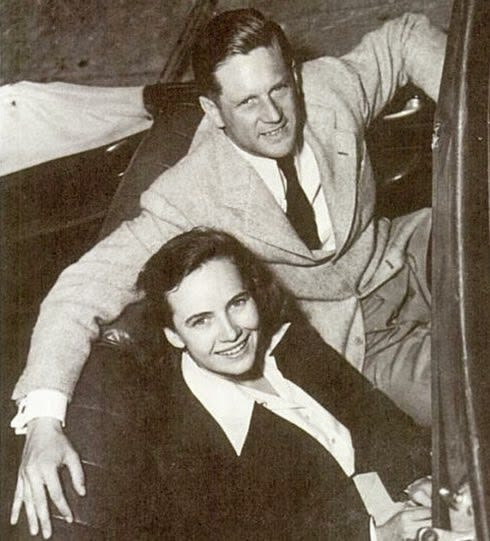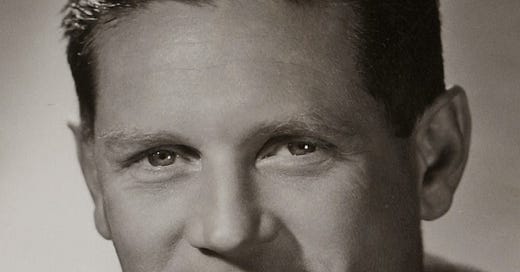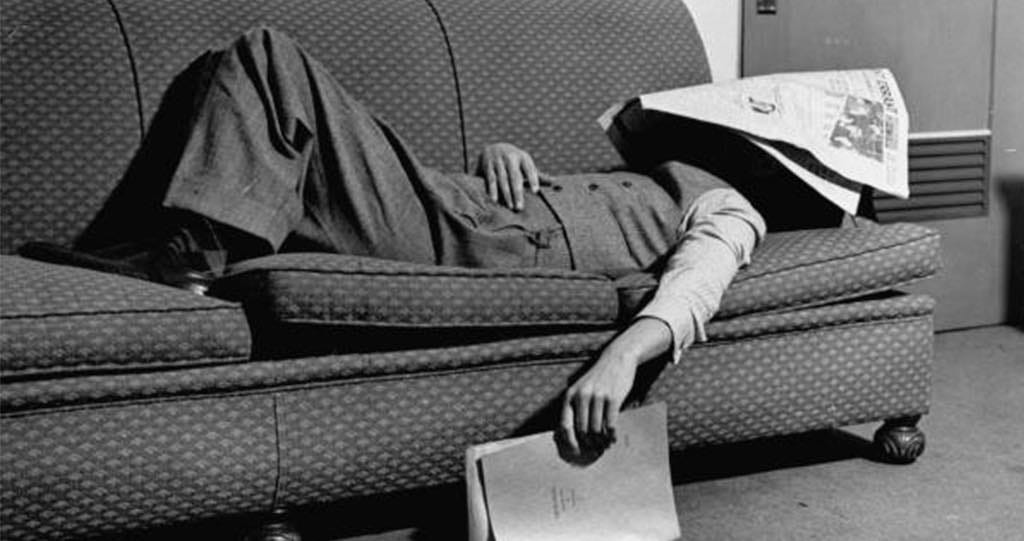Ever hear of Niven Busch?
Niven who, you ask? And there you have it. We remember the films, the stars, the directors ... but the screenwriters behind all of that magic are often nowhere near top of mind.
This handsome devil might just as well have been among the Hollywood stars of the time, among the likes of Cary Grant, Joseph Cotten, William Holden and Fred MacMurray, wouldn’t you agree? He was screenwriter and novelist Niven Busch (pictured here in 1944), a man who certainly had all it took to make it in Hollywood - and he did so in many ways!
Whether you’re a screenwriter or not, but especially if you are one, it’s always worthwhile to take the time to look back at the lives and stories of those who came before us. Niven Busch's last mention came with the obituary in the New York Times on 27 August 1997: "Niven Busch, a screenwriter and novelist best known for his novel "Duel in the Sun" which David O. Selznick made into a classic western film in 1947, died at his home on Sunday. He was 88 years old and lived in San Francisco."
The article went on to mention the Busch moved to Hollywood in 1931, after having worked for the Time magazine and The New Yorker (click here for his 1929 articles). His next twenty-one years in Hollywood saw him working with all of the big names that are, for us, the stuff of Hollywood legend. For him, it was daily business. He wrote original material, most often collaborated with other writers - and quickly tried to get a greater sense of control as most of the work he did, didn't end up on screen as he'd hoped (oh do I ever know how he felt!).
Busch started writing novels when he could find the time and made constant efforts to get into the producing side of the business to gain that artistic control he was after. After two decades in Hollywood there were only a handful of films he was truly proud of. "Pursued" (1947), the film that stared Robert Mitchum and Teresa Wright, was one of those.


Theresa Wright was a major star then - and married to, yep, Niven Busch. There’s one thing you often hear from writers - they prefer writing to socializing. I count myself among these - but I’ve also learned that engaging with the world is where the business lies. People either know you, or they don’t. You’re either part of a conversation and top of mind, or you’re not. Busch wasn't afraid to mingle. He was a dandy and a smooth talker and came across more like a movie star, rather than the guy one traditionally envisioned behind a typewriter.
In "Backstory", a series of Golden Age screenwriters are interviewed. The Niven Busch interview begins as follows: "The best measure of his optimism and his physical bravura is his abiding openness to doubt. Hollywood veterans, especially the sportsmen, sometimes become monolithic, vain, and macho. The muscle in Niven Busch has never allowed him to abandon irony and humor, and there was nothing as touching to me in our interview as his 1983 realization, half amused, half bereft, that he still wasn't sure whether his going to Hollywood had been for the best."
His life might have been different, of course. But, purely selfishly, I have to say I'm grateful that he went. He had his hands in more than twenty films, among them The Postman Always Rings Twice, Duel in the Sun (Busch wrote the novel and but didn't want to write the script), The Westerner, The Capture, The Man from the Alamo and the aforementioned Pursued.
Click here for the full Backstory interview in Google Books. (Backstory 1: Interviews with Screenwriters of Hollywood's Golden Age - by Patrick McGilligan). Find out about his early connections with David and Myron Selznick, his move to Hollywood, getting around, making connections, staying sane.
Great insights into story conferences and legends like Michael Curtiz and Howard Hawks. Also packed with the history of the old Hollywood system, about hired guns, weekly checks, collaborating and much more. All of it most excellent film history - worth your time! I mean, just read these two memory snippets:
"Anyway, David (Selznick) was kind of a gofer and errand boy. He was like fifteen and I was eleven. So once in a while he'd let me sweep out a cutting room. And that was a big treat because of the smell of the film, for chrissake!"
"I said "How are you, Myron (David Selznick's elder brother)?" I knew by this time he was an important agent. In fact, he was the first important agent in Hollywood and he turned everything around. Garbo was working for $75 a week and he got her $7'500."
PS: You may have seen this image before - but this isn’t some random stock shot depicting an overworked Hollywood screenwriter - it actually depicts none other than Niven Busch in 1937, taking an undoubtedly deserved break from hammering out the next draft of whatever he was working on just then.









